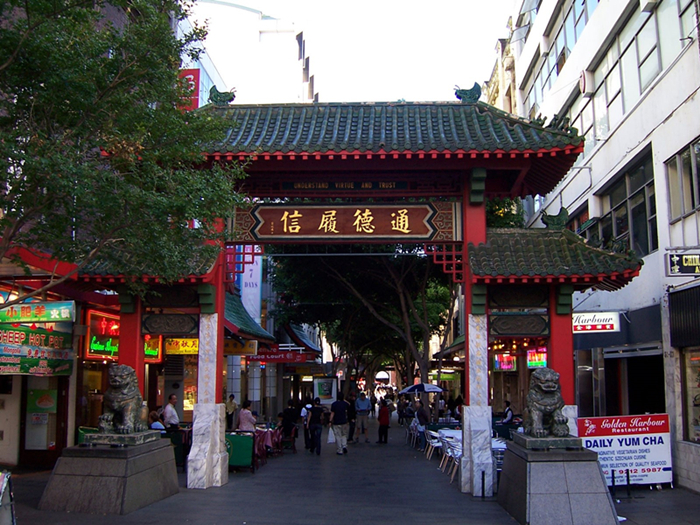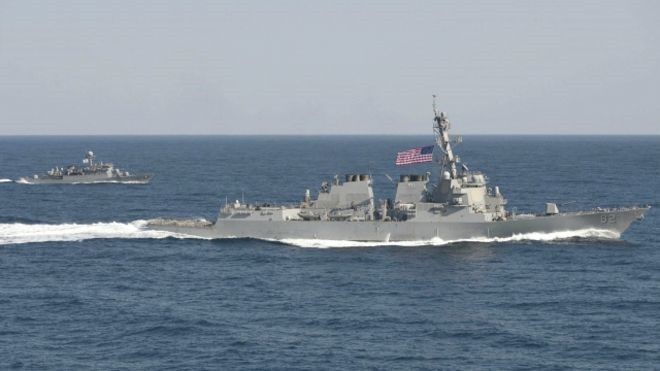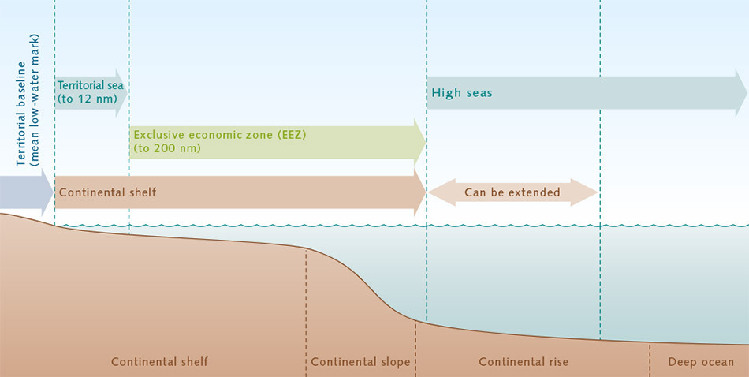
悉尼唐人街,資料圖
東南網(wǎng)澳大利亞站7月14日訊 (本站記者 彭寒)關(guān)于應(yīng)菲律賓共和國單方面請求建立的南海仲裁案仲裁庭于2016年7月12日作出的裁決,澳大利亞各大華人華僑社團于昨日紛紛公開發(fā)聲,力挺中國政府維護南海主權(quán)。
在澳僑團力挺中國政府
關(guān)于應(yīng)菲律賓共和國單方面請求建立的南海仲裁案仲裁庭于2016年7月12日作出的裁決,中華人民共和國外交部鄭重聲明,該裁決是無效的,沒有拘束力,中國不接受、不承認(rèn)。
澳洲中國和平統(tǒng)一促進會(以下簡稱“和統(tǒng)會”)昨日發(fā)表嚴(yán)正聲明,表示應(yīng)菲律賓政府請求建立的南海仲裁案仲裁庭罔顧基本事實,肆意踐踏國際法,違反國際公理。仲裁庭對中菲的領(lǐng)土爭端和海洋爭端沒有仲裁權(quán),所作“裁決”是無效的。
該聲明還認(rèn)為,南海諸島自古以來就是中國領(lǐng)土,仲裁無法否認(rèn)中國在南海的領(lǐng)土主權(quán)和海洋權(quán)益。
和統(tǒng)會常務(wù)副會長周建在他的署名文章中寫道,“在整場鬧劇中,中國政府一直保持客觀冷靜的態(tài)度并再三堅定重申,在領(lǐng)土問題和海洋劃界爭議上,中國不接受任何第三方爭端解決方式,不接受任何強加于中國的爭端解決方案。目前這場鬧劇已經(jīng)結(jié)束,是時候回到正確軌道了。”
澳大利亞維護和平與正義行動委員會也發(fā)表聲明說,“南海國際仲裁庭”從合法性到司法管轄權(quán)再到仲裁的過程與規(guī)則,都存在著不合理、違反國際法和越權(quán)因素。
澳政府態(tài)度曖昧,專家稱愚蠢

澳大利亞外長Julie Bishop(左)與中國外長王毅,資料圖
澳大利亞外交部長Julie Bishop(朱莉·畢曉普)于昨晚發(fā)表媒體通告,稱南海仲裁案仲裁庭所做出的裁決符合聯(lián)合國海洋法公約(United Nations Convention on the Law of the Sea),只于海洋權(quán)益有關(guān),與主權(quán)無關(guān),并呼吁中菲雙方遵守并執(zhí)行該裁決。
而與此同時,除了聲明之外,Julie Bishop并沒有證實澳大利亞會有任何進一步實質(zhì)性的行動計劃。
早在今年年初,Julie Bishop就曾多次表態(tài),在南海問題上澳大利亞不會選邊站,并指出澳大利亞在該地區(qū)的任何行動改變都將帶來緊張態(tài)勢加劇的危險。而在仲裁結(jié)果出爐之后,包括Julie Bishop本人和總理Malcolm Turnbull(馬爾科姆·特恩布爾)在內(nèi)的多名澳大利亞高層政客都公開表示,任何希望澳大利亞參與所謂“自由航行”(Freedom of Navigation)計劃,并向南海派遣船只的聲音都是“極為不負(fù)責(zé)任的”,將會“加劇整個地區(qū)的緊張氣氛”。
“所有人都希望地區(qū)局勢可以緩和下來。”澳總理Malcolm Turnbull昨天表示,自己也是其中一員。
對于澳大利亞政府相對曖昧的反應(yīng)和態(tài)度,悉尼科技大學(xué)澳大利亞-中國關(guān)系研究院主席黃向墨先生在接受本站記者采訪時表示,該聲明的發(fā)表是在意料之中,是澳大利亞現(xiàn)政府作出的愚蠢決定。同是他也表示,目前來看澳大利亞不會參與所謂的“自由航行”計劃。
自由航行

美國版的“自由航行”計劃向多國領(lǐng)海“發(fā)出了挑戰(zhàn)”,資料圖
自由航行(Freedom of Navigation,F(xiàn)ON)是國際習(xí)慣法中的一個原則,即除了國際法規(guī)定的例外情況,懸掛任何主權(quán)國家旗幟的船舶不受來自其他國家的干擾。而如果該船只要經(jīng)過某國的領(lǐng)海,則必須建立在“無害通過”的前提下,即不損害沿海國的和平、安全和良好秩序。
而1979年,美國卡特政府推出了美國版的“自由航行”計劃。該計劃是美國政府的一項外交及軍事行動計劃,旨在防止沿海國家的“過度海洋主張”和保證美國軍事力量在全世界機動暢通。換言之,美國通過向他國領(lǐng)海派遣軍艦的方式,來表達自己不承認(rèn)該國在此海域的主權(quán)。僅在在2014年自由航行行動中,美國就對中國、厄瓜多爾、印度、菲律賓、韓國、臺灣等19個國家和地區(qū)的領(lǐng)海“提出了挑戰(zhàn)”。
自由航行的權(quán)利已被《聯(lián)合國海洋法公約》第87(1)a條加以法典化,但值得注意的是,美國并沒有加入該公約。
South China Sea: Chinese Australian Associations Back Chinese Govt
By Han, Southeast Net Australia, 14 July
Numbers of overseas Chinese Associations in Australia have issued their statements of backing Chinese Government over the dispute of South China Sea yesterday, after the South China Sea arbitral tribunal in The Hague delivered an outrageously one-sided ruling in the case initiated by the Philippines.
China has been staying objective and calm throughout the whole process and insists on settling the dispute by dialogue, with its clear attitude of not accepting any third-party involvement, wrote James Zhou, deputy president of Australian Council for the Promotion of Peaceful Reunification of China.
“It’s now the time of bringing the farce back on the right track.” He also wrote.
Australian Foreign Minister Julie Bishop, on the other hand, has admitted the binding power of the arbitration, and meanwhile denying any future plans of conducting Australian patrols within 12 nautical miles of the artificial islands built by China.
Mr. Xiangmo Huang, Chairman of Board of UTS Australia China Relations Institute, called the statement of Australian government of backing the arbitration expected but “silly”.
At this particular point, it’s unlikely for Australia to conduct any further move of the Freedom Of Navigation exercise within the claimed territory of China, said Huang.
Freedom of Navigation
Australia will continue to exercise our international law rights to freedom of navigation and overflight, and support the right of others to do so, wrote Julie Bishop in her statement, to which Chinese Foreign Ministry spokesperson Lu Kang said he was “Shocked” by Julie Bishop’s remark.
"We hope that the Australian side will take international law seriously, instead of as a trifling matter," Lu Kang told a daily news briefing on Thursday.

The division of High Sea, Exlusive Economic Zone and Territorial Sea
The technical term of ‘Freedom of Navigation’ is a principle of customary international law that ships flying the flag of any sovereign state shall not suffer interference from other states in high sea and exclusive economic zone, codified as article 87(1) a of the 1982 United Nations Convention on the Law of the Sea, to which Australia has ratified.
Other states also enjoy the rights of innocent passage, being not prejudicial to the peace, good order or security of the coastal state, through the territorial sea of a coastal state, said United Nations Convention on the Law of the Sea; notably, the United States has signed, but not ratified the convention.
However, United State Freedom of Navigation program has been challenging other coastal states’ territorial claims for over 30 years, by sending Navy & Air Force within claimed territorial sea.
?

